How to 'Give Your Best' to
Refugee Women
An insight into how the COVID-19 pandemic
has affected female refugees and
asylum seekers, and the charities supporting them
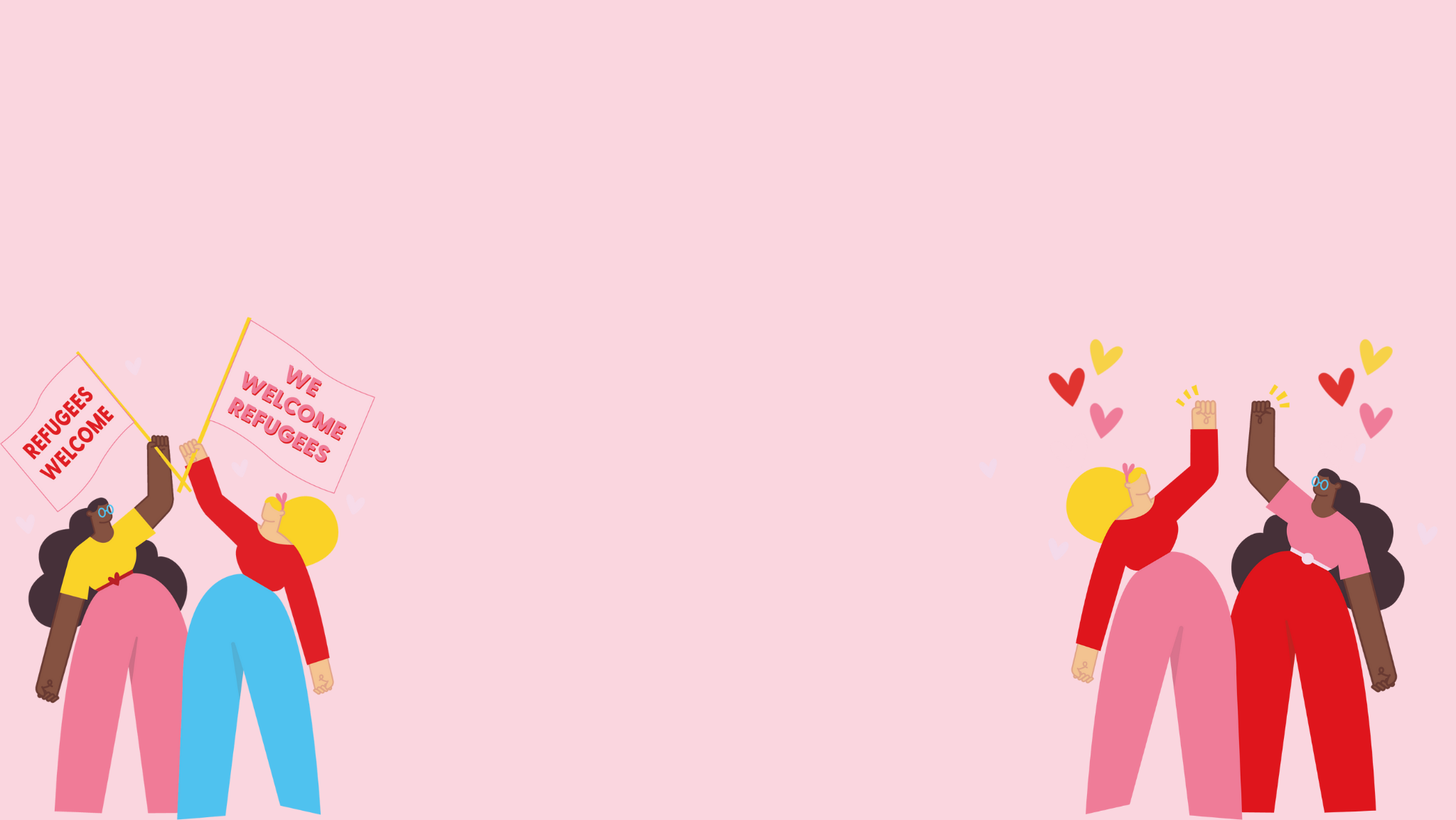
Refugee women and asylum seekers in the UK
The onset of the COVID-19 pandemic forced everyone to make immediate changes to our everyday lives, and the process of adapting to these changes is one we’ve all had to contend with in different ways.
For refugee women and those seeking asylum in the UK, some of these changes involved being cut off from essential provisions, delayed asylum claim hearings, and exacerbated feelings of isolation, anxiety and loneliness.
A recent report by Sisters Not Strangers, a coalition of charities dedicated to supporting refugee and asylum-seeking women, collated the experiences of these women during the pandemic.
They surveyed more than 100 asylum-seeking women from England and Wales, as well as those with leave to remain, and responses were supplemented by a survey of 24 staff and volunteers.
They found that 32% of the women they spoke to struggled to access water, soap and cleaning products during the pandemic, and three quarters of the women went hungry.
Forty-seven women stated that they went hungry because they could not access their usual support from charities, and half of these women with young families struggled to feed their children.
Fifty women said they were too scared to visit shops, and 21 women said that they or a family member had COVID-19 symptoms and did not feel able to approach the NHS.
Hira Aftab, 30, from Refugee Women Connect, outlined some common misconceptions about female refugees in the UK.
"I think there's a lack of awareness drawn to women refugees in general; there's so much that can be said, so much research that can be done and they're oftentimes very overlooked."
"Women are often seen as this large subset of refugees, but they have their own needs, and many times children are involved.
"I think empathy is lacking to be honest; looking at someone on a human level and saying listen, I understand why you're here.
This thread is a really useful resource to share with those around you who do not understand why asylum seekers want to reach the UK, and the mounting danger of the campaign the Government continues to deploy for ‘pushbacks’
— Give Your Best UK 🧡 (@giveyourbest_uk) July 31, 2021
Definitely worth a read, thank you @stand_for_all 🧡 https://t.co/UXcXJI9Esv
"I work with a couple of other organisations and we compared refugees 20 or 30 years ago with what's happening now, and most across the board say it's gotten much harder and much worse than it was during the 1990s.
"They say the world seems colder than it did in the 90s - a lot of people say that.
"I also fundamentally think politicians need to realise if they make policies harder, or there's deterrent strategies, they won't really deter anyone because people are still fleeing for their lives."
Such statistics reflect the vulnerable status of women seeking asylum in the UK, and the adverse impact of the pandemic on female refugees and asylum seekers is one that extends beyond UK borders.
The UN Refugee Agency (UNHCR) have released reports on how COVID-19 has exacerbated gender inequalities for refugee women and girls, with the devastating socio-economic impact of the virus affecting almost every aspect of everyday living for refugees.
UNHCR statistics show at the end of 2020 there were 132,349 refugees, 77,245 pending asylum cases and 4662 stateless persons in the UK.
People become refugees not by choice, but by circumstance. pic.twitter.com/hwVNq5zT88
— UNHCR, the UN Refugee Agency (@Refugees) August 16, 2021
Currently, resettlement for refugees in the UK is processed via the Gateway Protection Programme, the Mandate Scheme, the Vulnerable Children Resettlement Scheme (VCRS), or the Syrian Vulnerable Person’s Resettlement Scheme (VPRS).
However the potential introduction of the Nationality and Borders Bill, which is currently being deliberated in the House of Commons, could impose additional barriers to asylum seekers and refugees seeking haven in the UK.
With reports such as these highlighting the psychological, economic and social impact of the pandemic on refugee women, making sure there are enough support avenues for such women is even more vital.
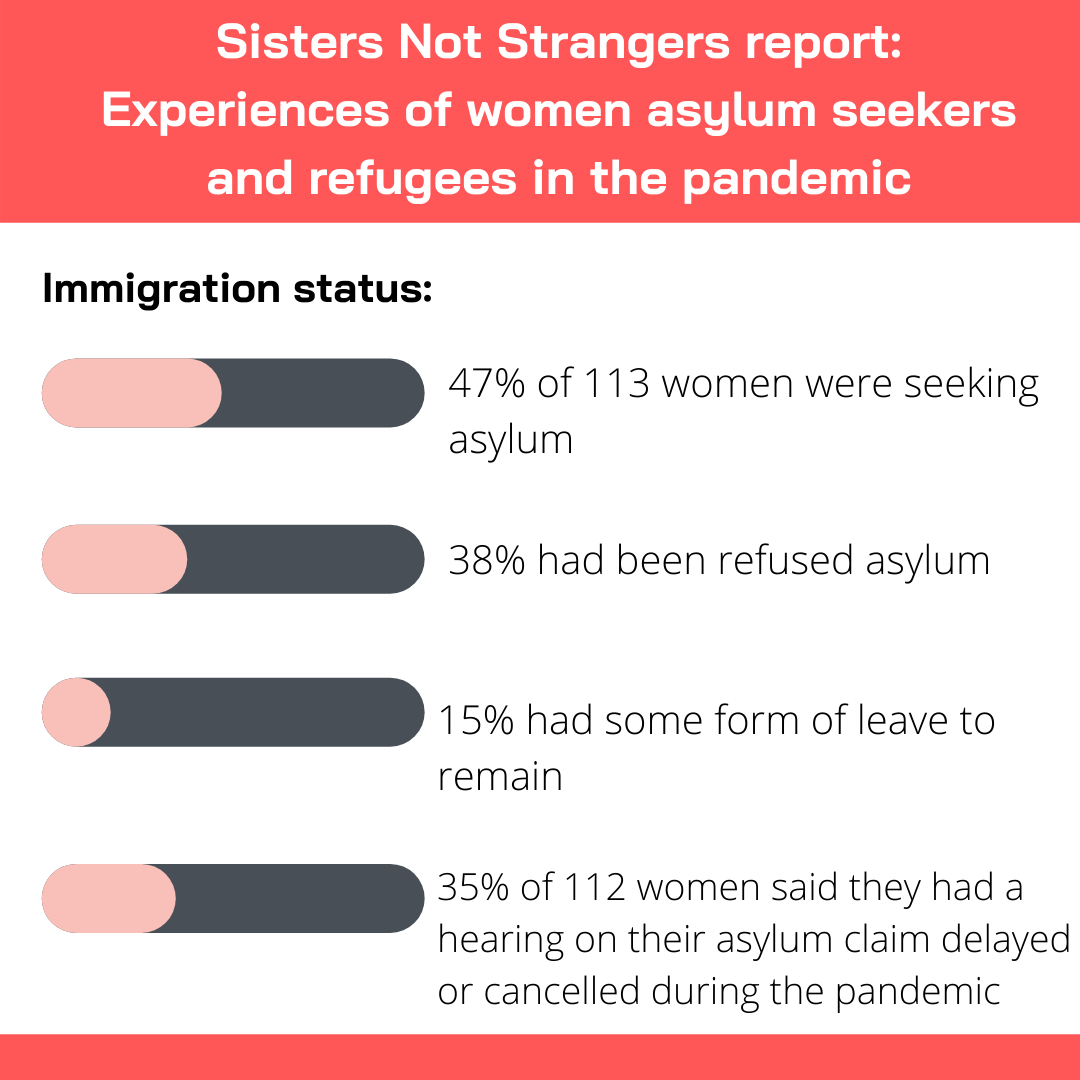
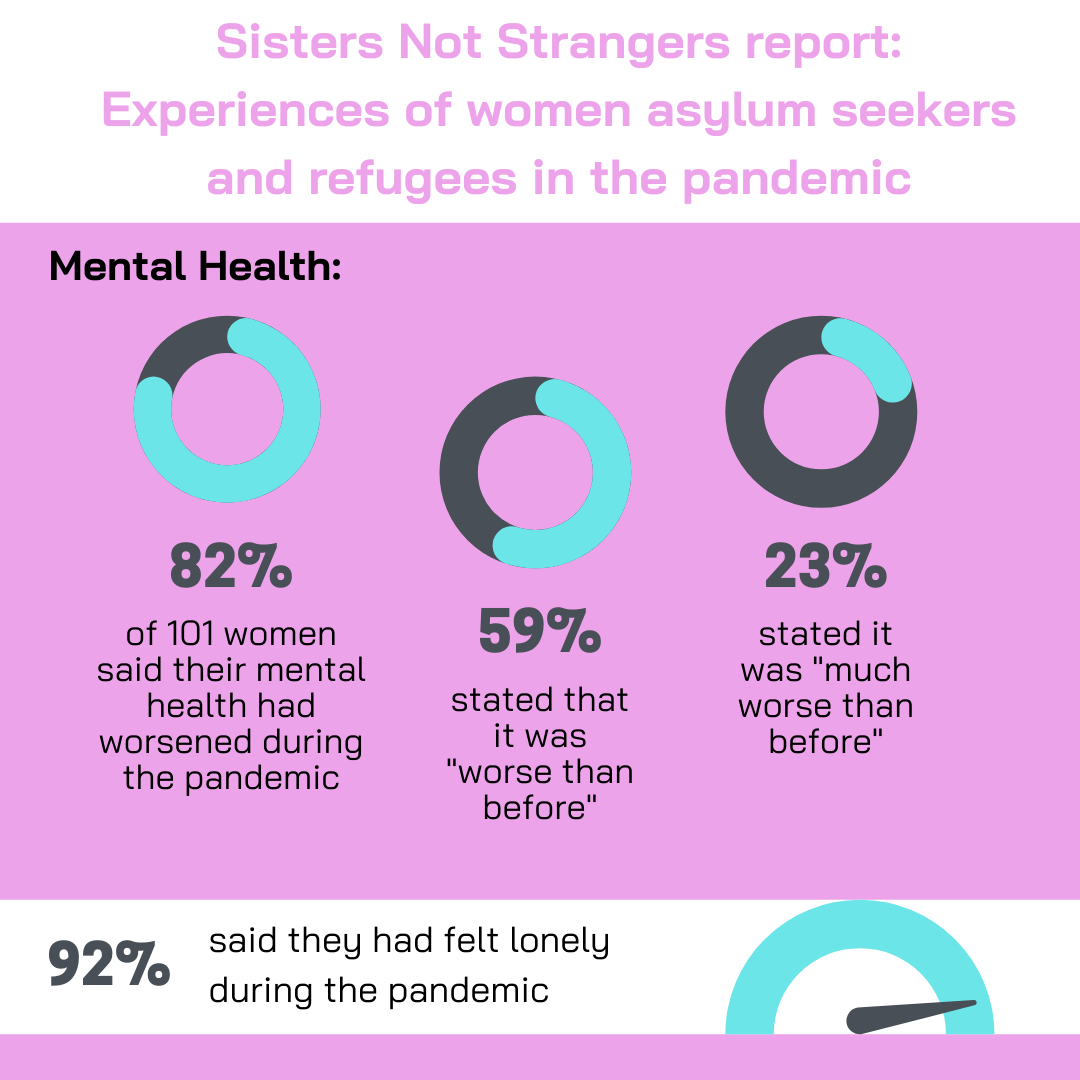
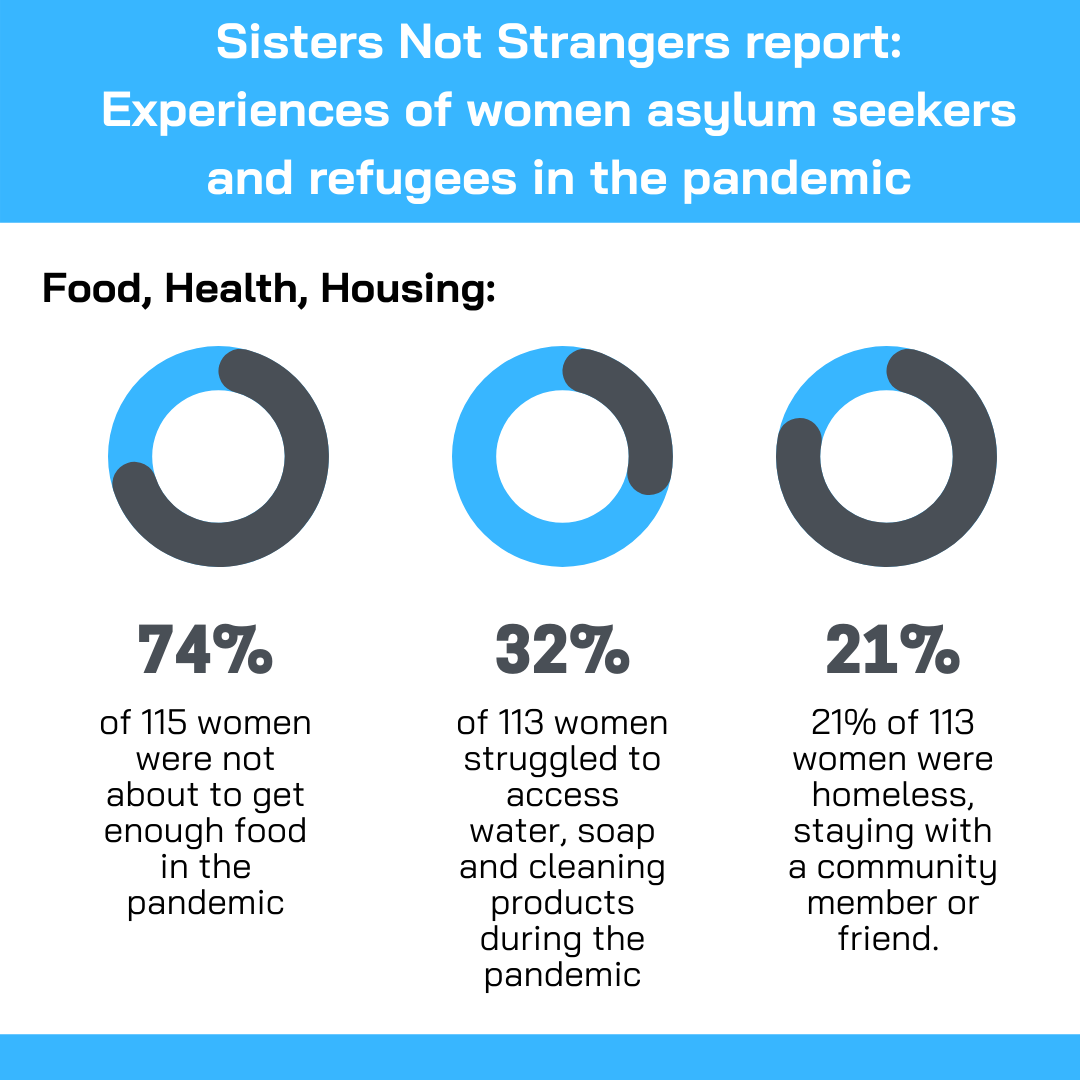
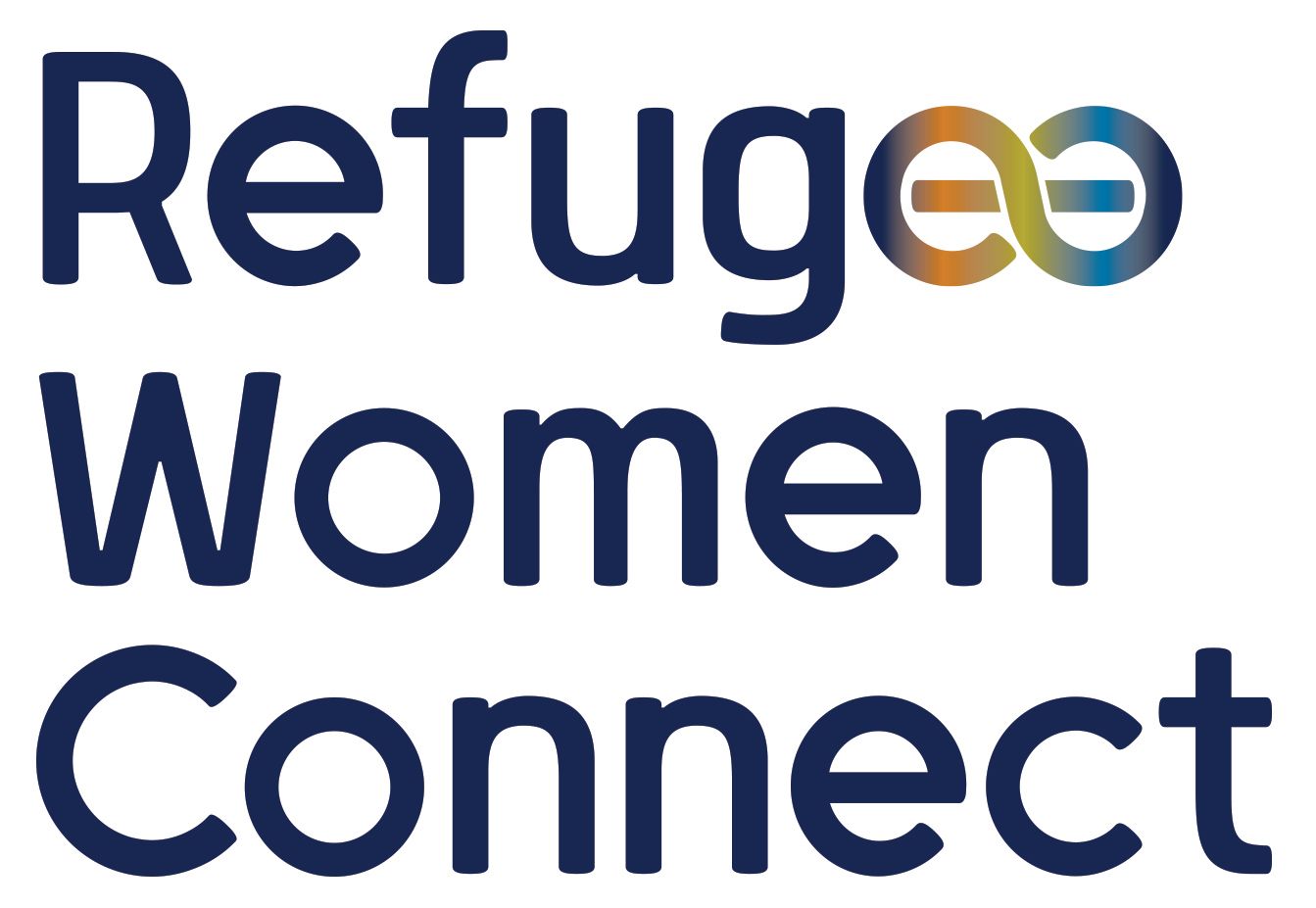
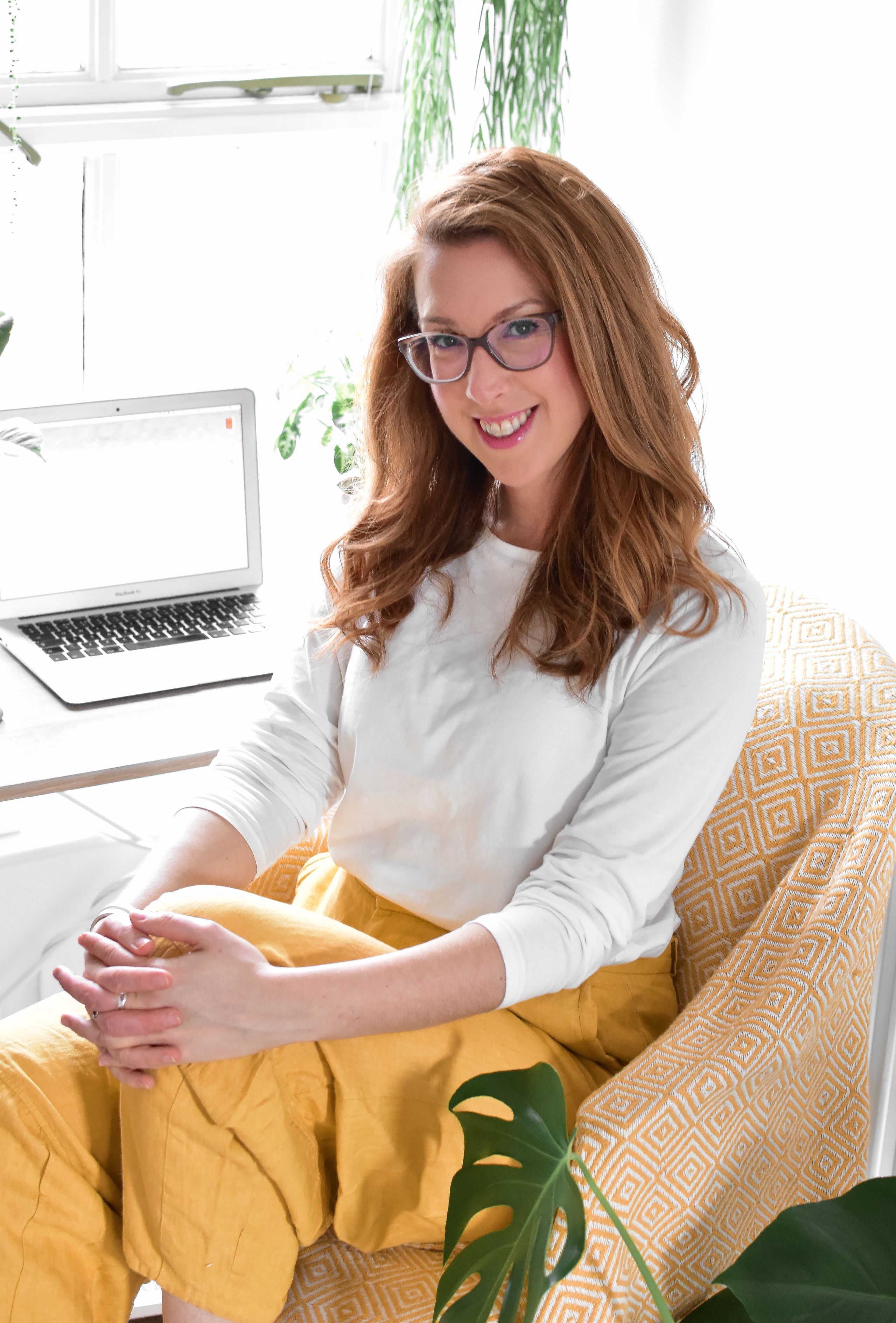
Sol Escobar
Sol Escobar
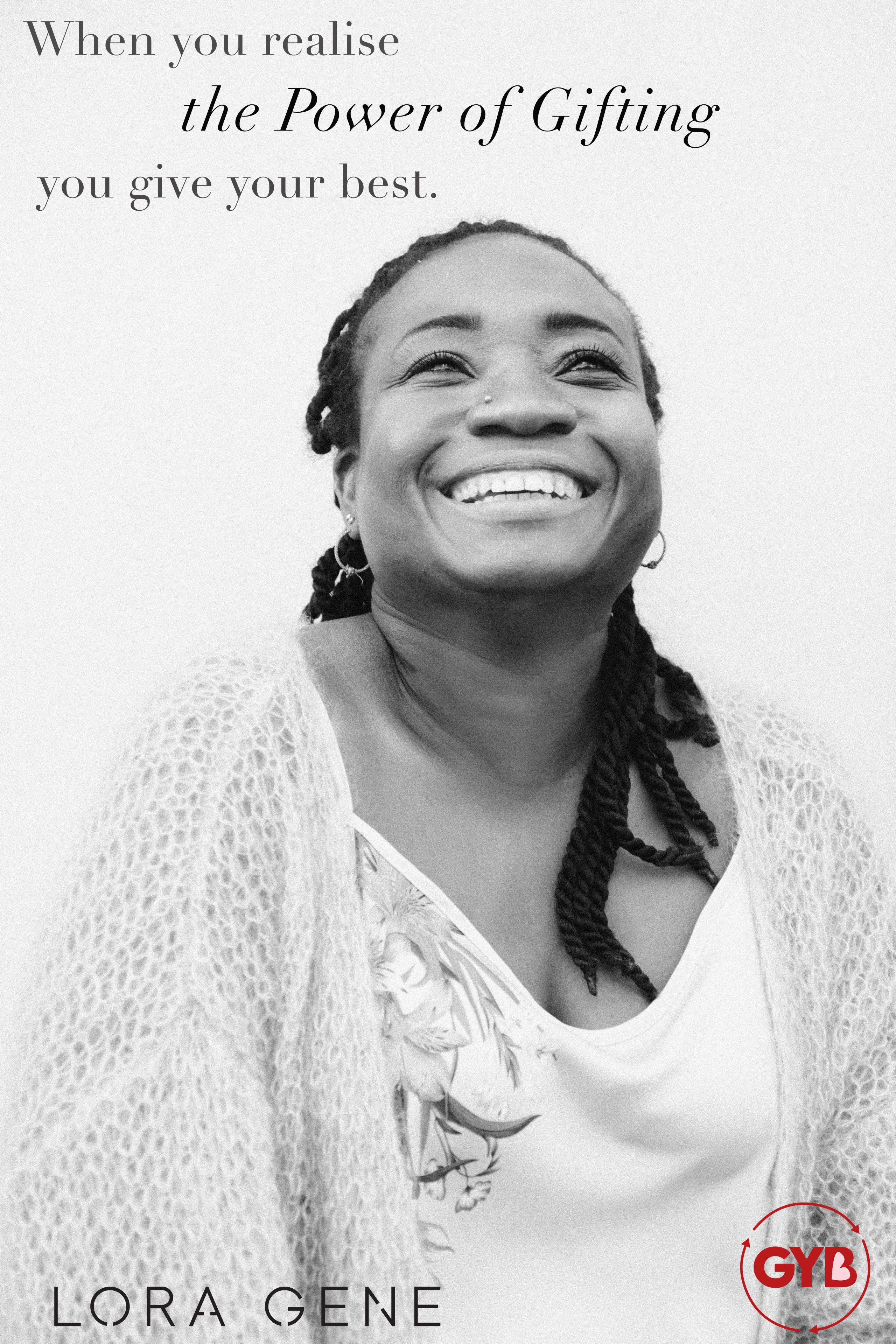
Model: Kemi Ogunlana, Photographer: Zsuzsanna Palmai - Kemi, a mother of four from Nigeria, was granted her refugee status after four years of seeking asylum in the UK. Kemi is a beneficiary of Give Your Best and is involved with different charities supporting women in their journey to claim asylum in the UK. You can read more of her story here: https://www.giveyourbest.uk/inspiring-women-a-conversation-with-kemi-
Model: Kemi Ogunlana, Photographer: Zsuzsanna Palmai - Kemi, a mother of four from Nigeria, was granted her refugee status after four years of seeking asylum in the UK. Kemi is a beneficiary of Give Your Best and is involved with different charities supporting women in their journey to claim asylum in the UK. You can read more of her story here: https://www.giveyourbest.uk/inspiring-women-a-conversation-with-kemi-

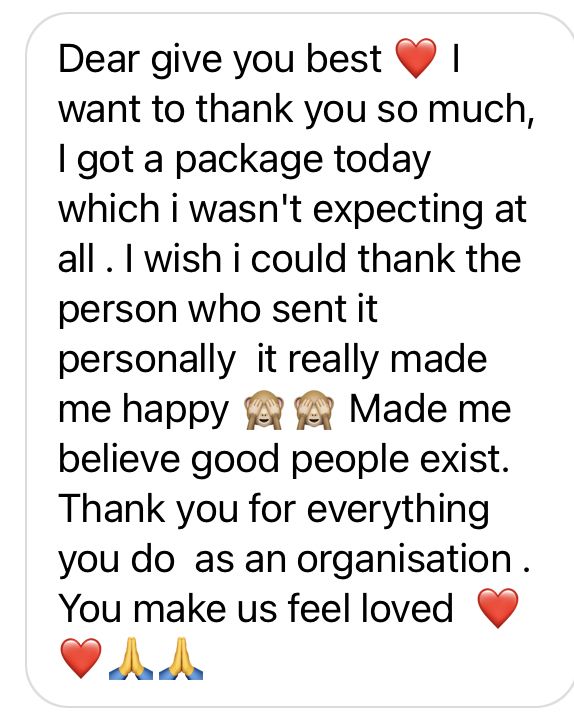
Give Your Best
During the first lockdown, support channels for refugee and asylum-seeking women were disrupted as charities across the country were forced to close their doors.
Give Your Best is an organisation which grew out of the need to adapt to these changing circumstances, finding a way to support female refugees in a remote capacity.
Sol Escobar, 40, developed the idea for Give Your Best in the first few months of lockdown in the UK.
Give Your Best provides an online catalogue of donated clothing that women who are refugees, seeking asylum, or destitute, can shop for free.
It aims to individualise the process of donation, for both the giver and recipient, emphasising the importance of humanising the refugee crisis through this connection.
Sol said: “What we want to do is focus on agency and on giving back choice and on creating a connection between people who want to give their clothing and to people who can choose what they want to receive.
“We want to emphasise that just because you have a precarious immigration status, doesn't mean you don’t have a fashion sense, or you don’t deserve to wear beautiful clothing.”
In a sense, Give Your Best was also born out of a personalised connection.
Its founder, Sol, having previously volunteered in the charity sector for many years, got in touch with a household of women seeking asylum at the onset of the pandemic:
“They were telling me how difficult it was to access basic things now that everything was closed and there were no charity shops open.
"And of course they only get about £5 a day and usually the Home Office places them quite outside of cities so they’re quite isolated.
"So say, for example, if you only have £5 a day and you need to buy menstrual products because you got your period, but you also need to go into town to be able to buy those products, and the fare is £4.50 to get into town, they’re actually not able to do that because there’s so many limitations.
"And so they were saying with the change of the seasons they had no access to clothing or anything."
Sol and her friends began taking photos of their clothes and sending them to this community of women so they could choose the clothing items they wanted, and the idea snowballed from there.
Eleven months later this idea has grown into Give Your Best, a platform which has now received almost 5000 items of clothing, with 450 women shopping through the site and over 70 volunteers running the operation.
More information on how to shop with Give Your Best can be found on their website
More information on how to shop with Give Your Best can be found on their website
Community Responses
Sol reflected on what this has meant to the community of women they support.
“We encourage people to include notes of support, and little extras, and people go all out into making it into a gift, and for the people receiving it that’s so important to know.
“We always get messages saying, this wonderful stranger just sent me the most beautiful package.
"And it's a note saying you know, I don't know you but we're sisters and we support you and welcome you.
"And one of the women in the community, who is still seeking asylum, said before receiving a package she didn't know that she was welcome here.
“She didn’t know that there was anyone who actually wanted her here, because everything she saw (in the press) was negative.
"And that's where it hit us - it goes so much beyond the clothing - the clothing is an excuse to connect these two communities.
“When you are sending a package to a woman who is your same size, and has your same fashion sense, and, as has happened before, literally lives down the road from you, it reminds you they’re actually just right here.”
In a year where everyone has felt the effects of isolation, the need for empathy, human connection, and the necessity of supporting those who are most vulnerable in our society is more relevant than ever.
Reflecting on changing attitudes in the pandemic, Sol said: "It has been a year and a half of what we're doing, and a year and a half is a long time in people's lives - I do think it has changed behaviours in a significant way.
"One of them is this whole connection to your community and your neighbours and supporting people.
"That has been there before, but perhaps not on such a large scale, and this shift, hopefully, will last."
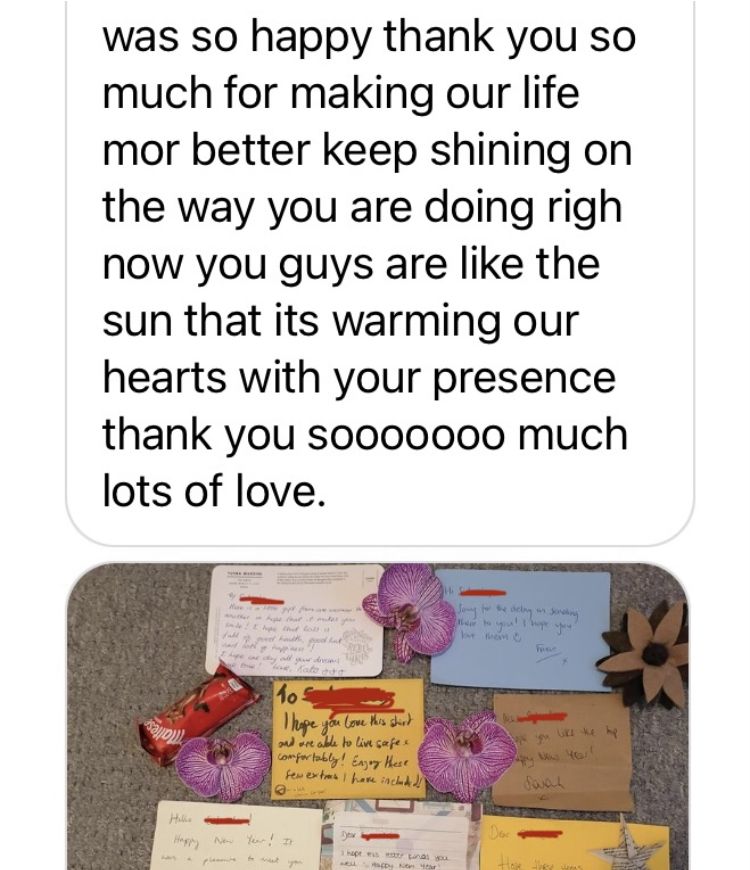
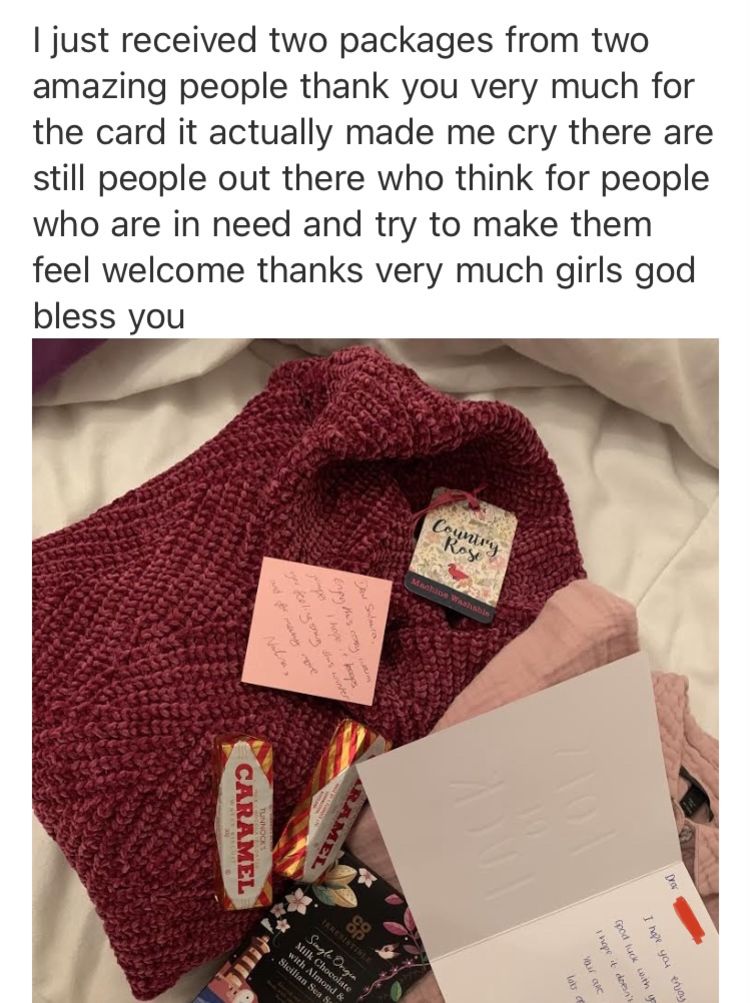
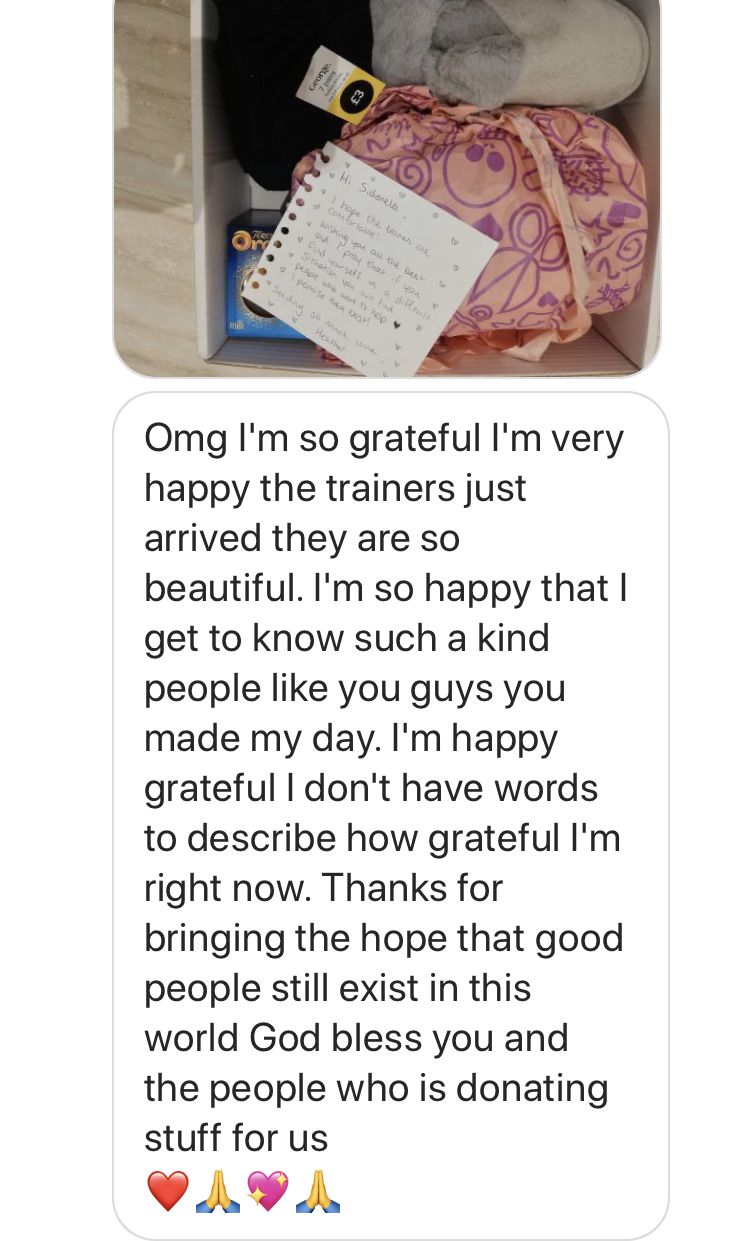
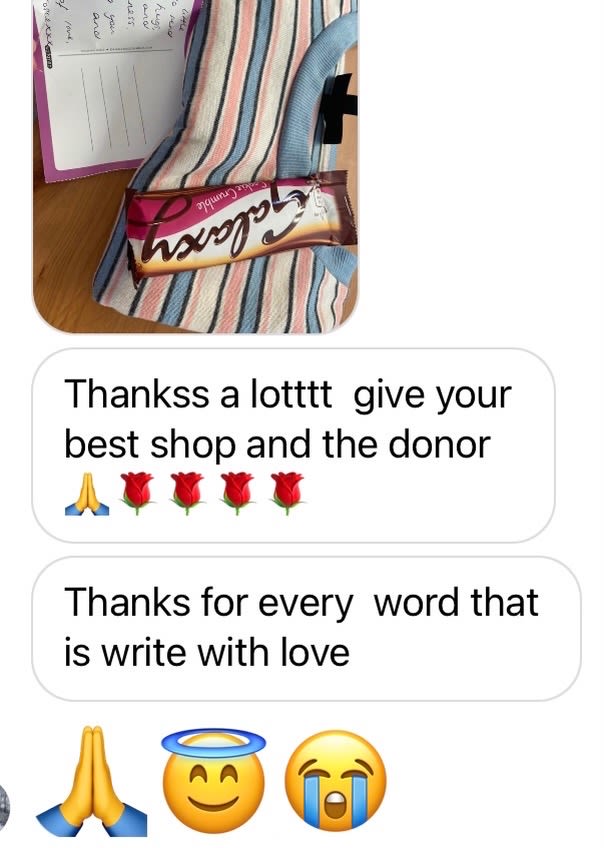
HOW TO HELP FEMALE REFUGEES AND ASYLUM SEEKERS
Whether you're looking to donate, volunteer or want to choose another route of support, here are some of the charities and organisations which help female refugees and asylum seekers build a safe life in the UK.

Design credit: Give Your Best
Design credit: Give Your Best